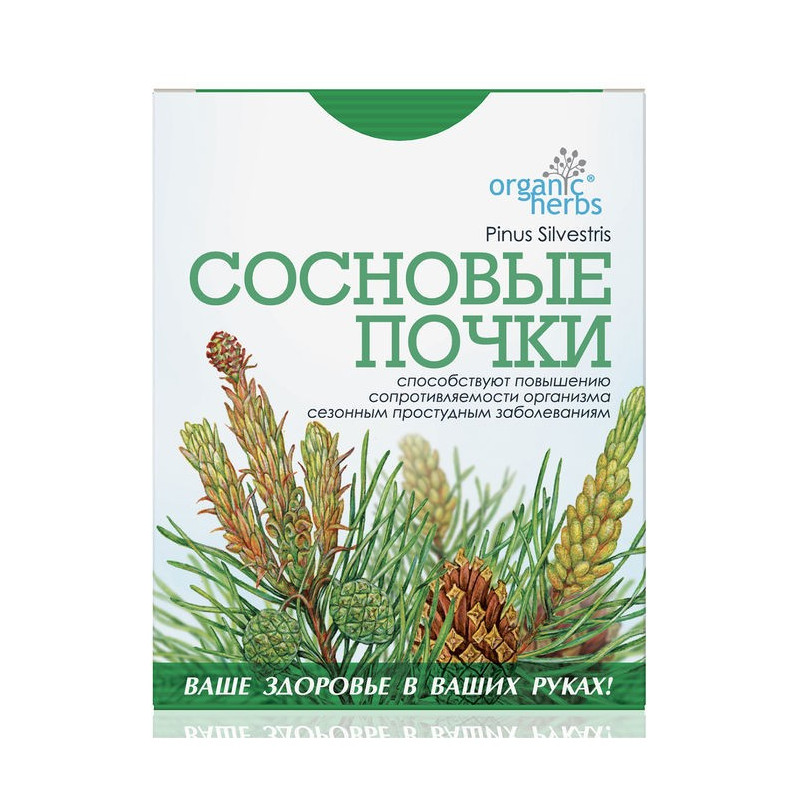



 All payments are encrypted via SSL
All payments are encrypted via SSL
 Full Refund if you haven't received your order
Full Refund if you haven't received your order
They contain essential oils (pinene, etc.), tannins, bitter substances (pinipicrin), etc.
Assign as an expectorant and disinfectant for chronic bronchitis in the form of a decoction (10, 0: 200, 0) by mouth and 1 tablespoon 3-4 times a day and for inhalation, hypoallergenic perfume.
Broth pine buds act as expectorant due to the excitation of the secretory activity of the epithelium of the respiratory tract, reducing the viscosity of sputum, stimulating the function of the ciliary epithelium. The viscosity of sputum depends on the release into the lumen of the respiratory tract glycoproteins synthesized by the glandular epithelium. In normal sputum, sialomucins are predominant, with which IgA is associated.
The consistency of sputum also depends on the amount of bacterial antigens in it. The level of IgA in sputum is an objective indicator of the therapeutic effect of expectorant drugs. Under the influence of pine kidney decoction, the level of IgA increases, which is consistent with the improvement of clinical indicators. In addition, the broth of pine buds are substances that disinfect sputum, providing antiviral and antimicrobial action. The buds of pine have a diuretic and choleretic properties, like all plants containing essential oils. Turpentine due to its good solubility in lipids penetrates deep into the skin, irritates its receptors and causes reflex changes in the organs. In therapeutic doses, causes flushing of the skin. With repeated use of turpentine on the skin often form blisters, develops suppuration and tissue necrosis. It has a particularly irritating effect on mucous membranes.
When ingestion possible gastroenteritis, accompanied by pain, nausea, vomiting.Turpentine even with light rubbing can be absorbed into the bloodstream, causing excitation of the central nervous system (anxiety, shortness of breath, increased blood pressure, insomnia). In severe poisoning, convulsions develop, and then depression of the central nervous system, respiratory failure. Turpentine is excreted primarily by the kidneys, partly unchanged, partly as a terpene alcohol associated with glucuronic acid. At the same time, it has an antiseptic effect in the urinary tract. Urine when taking terpenes gets a peculiar smell. Standing out through the mucous membrane of the respiratory tract, turpentine enhances the secretion of the bronchi and contributes to the dilution and secretion of sputum.
